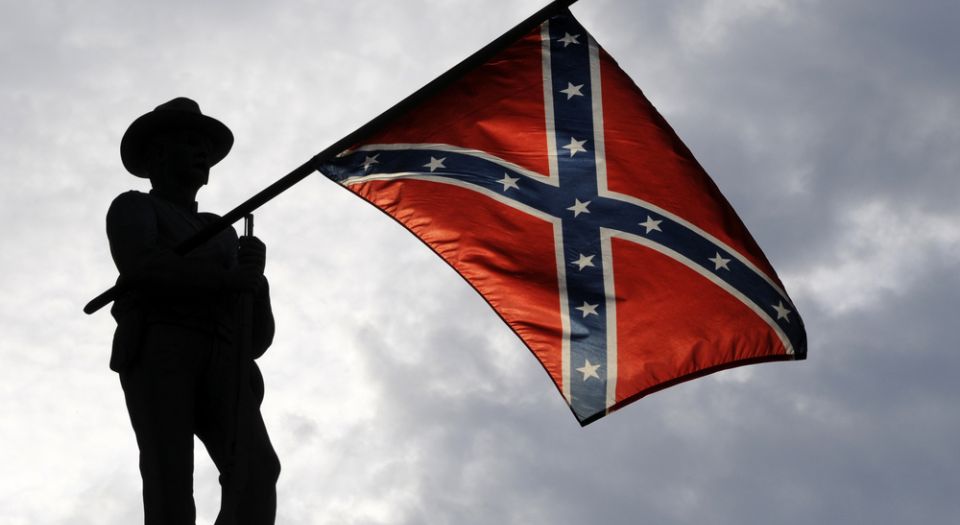I will defend your right to fly the Confederate flag
No form of political expression should be banned, not even hateful ones.

Want to read spiked ad-free? Become a spiked supporter.
Don’t ask me to defend a Confederate flag display by the state. Unlike private individuals and associations, governments don’t have rights: they exercise power. And while hoisting a Confederate flag on state property isn’t an illegal use of power, it is a politically abusive one, for all the reasons so recently recited in the wake of Dylann Roof’s massacre in Charleston.
But plant a Confederate flag in your backyard or wear its image on a t-shirt, and I’ll defend your constitutional right to do so, even as it’s condemned as hate speech. I’ll also defend the constitutional right to protest against your flag-waving with raucous incivility, while opposing any government efforts to ban private Confederate flag displays or to silence people who protest against them.
As long as this is still America (and not Western Europe) a government ban on speech is the exception, not the rule, and there’s nothing exceptional about speech considered hateful. On the contrary, these days, it’s quite common. Engage in vigorous, provocative argument about a controversial subject, and you’re likely to give offence. Give offence and you’re likely to be accused of spouting hate.
Like pornography, hate speech is difficult to define objectively. One person’s hate speech is another person’s religious conviction, moral code or political ideology. Precisely what ‘verbal offences’ would be covered by a hate-speech ban? That depends on the beliefs, biases and sensibilities of people with the power to enforce it.
Did President Obama engage in hate speech when he uttered a hateful word, instead of referencing it by an initial? Of course not. Words derive meaning and power from the context in which they appear and the tone in which they’re uttered. Yet Obama’s quotation of a single, racially charged word, in the context of a critique of racism, was headline news. It gave offence to some, titillated the media, and may have garnered more attention than the substance of his remarks.
You can partly attribute the media reaction to sensationalism; verboten words are clickbait. But the controversy over the president’s words (or word) also reflects a distressing unwillingness or inability to discern meaning, to distinguish between benign and malevolent utterances. It reflects a magical view of language that regards words as incantations casting spells, regardless of how or by whom they’re used.
Words are malleable; they don’t have single immutable meanings. They’re emblems of varying emotions and ideas. You might say the same of any symbol — a crucifix, the Star of David, or the Stars and Stripes — as well as the Confederate flag. It’s a potent symbol of slavery and subordination, but not quite a universal one. It may mean one thing to white separatists, another to an integrationist whose forbears fought in the Civil War, and another thing entirely to a historian. They’re entitled to read or display the flag as they choose. They’re not entitled to public, state endorsement of their readings or displays, just as people for whom the flag is an emblem or celebration of oppression are not entitled to state bans on its private display.
Official hate-speech bans share this with official displays of the Confederate flag. They harness government power abusively to gain advantage in what should be private battles over the meaning of words and symbols and expressions of hate. Freedom of speech is freedom from government intervention. If that’s not clear when government officials are your allies in battles over speech, it will be obvious when they turn against you.
Wendy Kaminer is an author, lawyer, and civil libertarian. This article first appeared on Cognoscenti.
Who funds spiked? You do
We are funded by you. And in this era of cancel culture and advertiser boycotts, we rely on your donations more than ever. Seventy per cent of our revenue comes from our readers’ donations – the vast majority giving just £5 per month. If you make a regular donation – of £5 a month or £50 a year – you can become a and enjoy:
–Ad-free reading
–Exclusive events
–Access to our comments section
It’s the best way to keep spiked going – and growing. Thank you!








Comments
Want to join the conversation?
Only spiked supporters and patrons, who donate regularly to us, can comment on our articles.